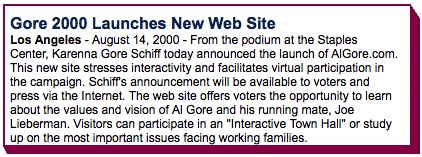At the end of 2022, I will no longer update the news section nor the research section of the Virtual Volunteering Wiki.
The wiki has been an unfunded project since it was launched a decade ago, in association with the publication of The Last Virtual Volunteering Guidebook. It’s a project that I have struggled to keep up-to-date because my paid work has to be my priority. I had intended to stop updating it back in 2020, but the start of the COVID pandemic in the USA in 2020 meant a surge in news and, months later, a surge in research, so I spent many, many hours – all without funding – reading through the news and research summaries and updating as appropriate.
But the surge in news and research regarding virtual volunteering has died down significantly. Therefore, I’ve decided that the end of 2022 is a good time to stop updating those two sections. The reasons:
- Virtual volunteering is no longer new, innovative nor experimental. Virtual volunteering is mainstream. When this wiki was launched, there were already thousands of nonprofits, NGOs, charities, community groups and government agencies involving online volunteers, but there was a need to prove it. There was also an ongoing need to show the varied ways organizations involve online volunteers. But now, virtual volunteering is a commonplace term and new but not-so-unique initiatives are launched at least weekly. It’s the opposite problem regarding research: there are so many research articles related to virtual volunteering now, because of the COVID-19 pandemic, it’s impossible to keep up with them in my spare time – again, my paid work has to take priority.
- I don’t have the time nor the funding to continue. Without funding, I can’t afford to subscribe to news outlets so I can read all of the stories, and since I have no funding to continue the wiki or research virtual volunteering, I pursue other professional pursuits where I can get funding (so I can pay for things like my mortgage, my motorcycle insurance, my health care costs, etc.).
I’ve been trying to find a university to host the wiki and incorporate its updating into a class curriculum for years, but have never had any interest at all. And so I’ve given up.
The wiki will stay online as long as my own web site stays online, and I may update other less time-intensive sections if a particularly outstanding resource comes my way.
And, of course, The Last Virtual Volunteering Guidebook remains available for purchase!
This is probably my last blog of 2022, so here’s to a happy, prosperous, healthy 2023 for all of us.
Also see:
- It’s time for a new assessment of virtual volunteering in Europe (& elsewhere) – who will do it?
- How to connect & engage with volunteers remotely – even when those volunteers work onsite
- Nine plus four emerging volunteer engagement trends (a VERY different list than you will read elsewhere)
- What too many are getting wrong about virtual volunteering these days
- “mandated telecommuting” has lessons for “mandated virtual volunteering”
- Yes, virtual volunteering will continue after the pandemic
- How to Immediately Introduce Virtual Volunteering at Your Program
- Safety in virtual volunteering



 For the present day:
For the present day: 




